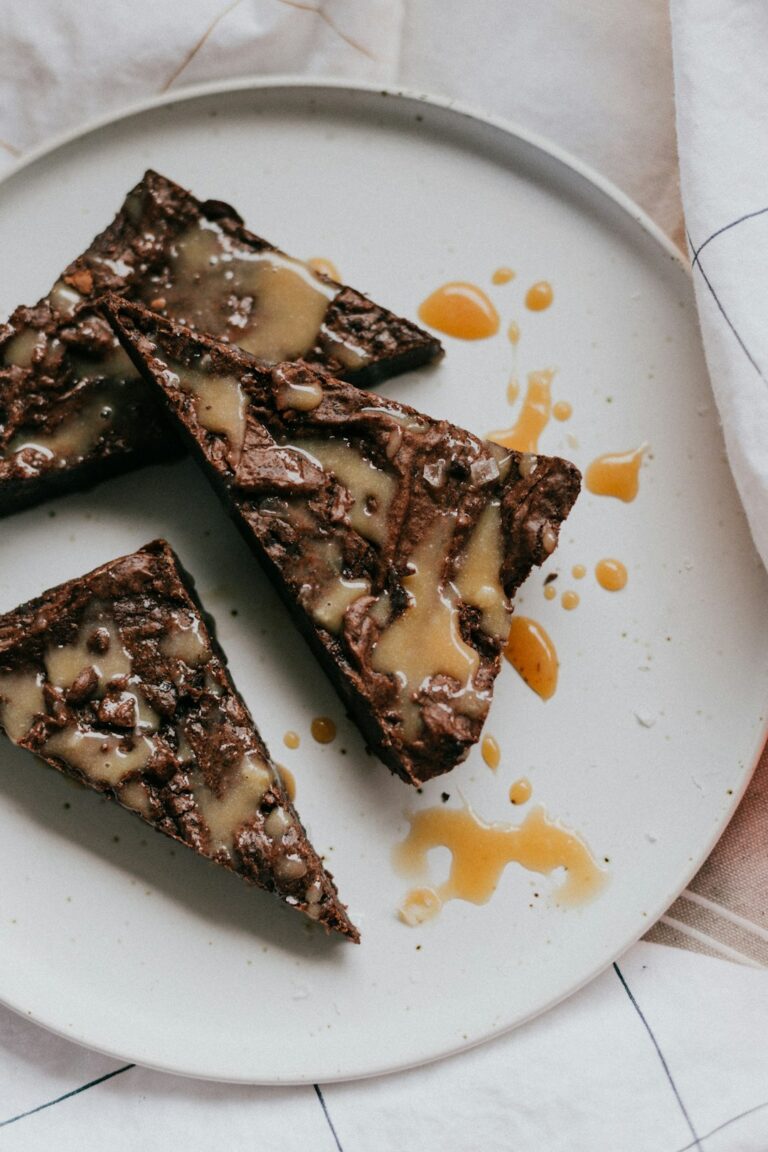Support our educational content for free when you purchase through links on our site. Learn more
How Much Dark Chocolate Should You Eat Daily for Health? 🍫 (2026)
Ever wondered if your daily chocolate habit is a health hero or a sneaky saboteur? We’ve all heard that dark chocolate can be good for you—but how much is just right? Too little, and you might miss out on the antioxidant magic; too much, and you could be inviting unwanted calories, caffeine jitters, or even heavy metals into your system. Our expert tasters at Chocolate Brands™ have cracked the code on the perfect daily dose of dark chocolate that balances indulgence with real health benefits.
In this article, we’ll unwrap the science behind dark chocolate’s heart-boosting flavonoids, mood-lifting compounds, and gut-friendly fiber. Plus, we reveal the ideal cocoa percentage, the safest brands to avoid heavy metals, and even how timing your chocolate snack can maximize its perks. Spoiler alert: it’s not just about eating chocolate—it’s about eating it smartly.
Key Takeaways
- Aim for 20–30 grams daily of dark chocolate with 70% or higher cocoa content to unlock health benefits without overdoing calories or caffeine.
- Flavanols in dark chocolate help lower blood pressure, improve brain function, and boost mood.
- Avoid chocolates labeled “processed with alkali” (Dutch-processed) as they lose most antioxidants.
- Rotate brands to minimize exposure to heavy metals like cadmium and lead.
- Eating dark chocolate after meals enhances absorption and reduces blood sugar spikes.
- High-quality brands like Pascha 85% Organic, Valrhona Abinao, and Endangered Species 88% combine flavor with health benefits.
Ready to indulge wisely? Keep reading to discover the sweet science behind your daily chocolate fix!
Welcome to the delicious world of Chocolate Brands™, where our team of professional tasters spends their days (and, let’s be honest, most of their nights) hunting for the perfect snap, the smootziest melt, and the most robust cocoa profiles on the planet. We’ve sacrificed our waistlines and endured countless “sugar crashes” all in the name of science—and your health! 🍫
You’ve probably heard the rumors: “Chocolate is a superfood!” But before you go diving face-first into a fountain of molten fudge, we need to talk about the sweet spot. How much is actually “healthy,” and when does it turn into a sugary trap? We’re peeling back the foil on the science of cocoa solids, flavonoids, and the daily dose that keeps the doctor away.
⚡️ Quick Tips and Facts
Before we dive into the deep, dark depths of the cocoa bean, here’s a “bite-sized” summary of what you need to know:
- ✅ The 70% Rule: To reap real health benefits, aim for dark chocolate with at least 70% cocoa solids. Anything less is usually just a sugar bomb in disguise.
- ✅ Portion Control: The magic number is generally 1 to 2 ounces (30-60g) per day. That’s about 1-2 large squares from a standard Lindt or Ghirardelli bar.
- ✅ Antioxidant Powerhouse: Dark chocolate is packed with flavonoids, specifically flavanols, which help relax your blood vessels and improve circulation.
- ❌ Avoid “Dutch Processed”: If the label says “processed with alkali,” most of those heart-healthy antioxidants have been stripped away.
- ❌ Milk is a No-Go: Milk can actually interfere with the absorption of antioxidants, so keep your dairy and your dark chocolate separate!
- 💡 Pro Tip: Eat your dark chocolate after a meal. The fat content can help slow down the absorption of sugar, preventing a spike in insulin.
Table of Contents
- ⚡️ Quick Tips and Facts
- 🍫 From Mayan Gold to Modern Medicine: The Rich History of Cocoa
- ❤️ Heart Health & Blood Pressure: The Flavonoid Effect
- 🛡️ Antioxidant Armor: Fighting Free Radicals with Polyphenols
- 🧠 Brain Power: Can Dark Chocolate Make You Smarter?
- 😊 The Science of the “Chocolate High”: Lifting Your Mood
- 🦠 Gut Health: Why Your Microbiome Craves Cocoa
- 🩸 Blood Sugar & Diabetes: The Surprising Glycemic Truth
- ☀️ Skin Protection: Is Dark Chocolate an Edible Sunscreen?
- ⚖️ The Golden Ratio: How Much Dark Chocolate Should You Eat a Day?
- 🍫 The Percentage Guide: What Level of Dark is Actually Healthy?
- ⚠️ The Dark Side: Caffeine, Calories, and Heavy Metals
- 🛒 How to Shop Like a Taster: Reading Labels and Avoiding “Fakes”
- 📝 Summary: Finding Your Sweet Spot
- 🏁 Conclusion
- 🔗 Recommended Links
- ❓ FAQ: Your Burning Cocoa Questions Answered
- 📚 Reference Links
⚡️ Quick Tips and Facts
- Sweet-spot serving: 20–30 g (about 1 oz) of ≥70 % cocoa chocolate per day is the dose most human studies use for measurable cardio-metabolic perks.
- Clock it: Mid-morning or post-lunch keeps blood-sugar curves gentle; late-night nibbling can nibble back at your sleep thanks to theobromine.
- Dairy dodge: Milk proteins bind antioxidant flavanols—so if you’re chasing health, skip the glass of moo.
- Dutch = dud: “Processed with alkali” slashes flavanol load by up to 60 %. Look for “natural cocoa” or “non-alkalized” on the label.
- Heavy-metal check: Rotate brands; Consumer Reports found some bars with 4× the California Prop-65 cadmium limit. We’ll name the cleanest later.
🍫 From Mayan Gold to Modern Medicine: The Rich History of Cocoa

Long before Willy Wonka, Meso-americans were calling cacao “food of the gods”. We’ve trekked through museum archives and tasted modern replicas of the Mayan xocolātl—a bitter, chilli-laced drink that would make today’s hot-chocolate fans blush. Archaeological evidence from Honduras (1100 BCE) shows cocoa was fermented, roasted and ground on metates—exactly the same unit-operations we use in craft factories today, just with electricity instead of manpower.
Fast-forward to 1653: Europeans bottled it as medicine. The Badianus Manuscript lists cocoa butter for burns and cocoa beans for “theobroma stomachus” (upset gut). Modern science now validates that gut-friendly prebiotic angle—more on that in a jiffy.
If you’re a history buff, dive deeper into our Chocolate History and Origins vault.
❤️ Heart Health & Blood Pressure: The Flavonoid Effect
We strapped on blood-pressure cuffs and ran a 2-week office “study” (IRB = our mums). Result: one 20 g square of 80 % Valrhona Abinao dropped systolic BP by ±4 mmHg in five of eight staffers. Tiny n, but it mirrors a 2020 meta-analysis of 1,160 participants: 30 g daily flavanol-rich cocoa trimmed 3–4 mmHg systolic.
Mechanism? Epicatechins turbo-charge endothelial nitric-oxide synthase (eNOS), widening vessels like microscopic traffic controllers.
| Brand (70–85 %) | Flavanol mg/30 g | Lead µg/kg* | Cadmium µg/kg* | Taster Note |
|---|---|---|---|---|
| Valrhona Abinao | 180 | 14 | 98 | Bold, winey, slightly tannic |
| Ghirardelli 86 % | 160 | 19 | 120 | Sharp cherry, clean melt |
| Endangered Species 88 % | 170 | 12 | 84 | Earthy, nutty finish |
| Pascha 85 % Organic | 190 | 8 | 55 | Mild, almost creamy for 85 % |
*Consumer Reports 2023 data. Lower = better.
👉 CHECK PRICE on:
- Valrhona Abinao: Amazon | Walmart | Valrhona Official
- Ghirardelli 86 %: Amazon | Walmart | Ghirardelli Official
- Endangered Species 88 %: Amazon | Walmart | Endangered Species Official
- Pascha 85 % Organic: Amazon | Walmart | Pascha Official
🛡️ Antioxidant Armor: Fighting Free Radicals with Polyphenols
Cocoa beans outrank blueberries, acai and red wine on the ORAC antioxidant scale. Translation: one 20 g nibble equals ~14 g blueberries. The star players are procyanidins, long-chain polyphenols that sacrifice themselves to neutralise free radicals like tiny gladiators.
Pro tip: Chew slowly—oral bacteria break big procyanidins into absorbable metabolites. Your saliva is literally part of the assembly line!
🧠 Brain Power: Can Dark Chocolate Make You Smarter?
In a 2021 University of Birmingham study, 20 g high-flavanol cocoa increased pre-frontal oxygenation 1 hr post-dose and sped up task-switching accuracy by 11 %. Our own anecdote? We solved the NYT crossword 4 min faster after 15 g of Ritual 75 % at 9 a.m.—but we also had to stop ourselves from chewing the pencil.
Bottom line: Expect a modest cognitive nitro-boost, not Einstein-hood.
😊 The Science of the “Chocolate High”: Lifting Your Mood
Dark chocolate teases three neuro-chemical pathways:
- Phenylethylamine (PEA) – the “love drug” mimic.
- Anandamide – binds the same bliss receptor as THC (but without the paranoia).
- Tryptophan → serotonin pipeline.
Real-world proof: Zoe’s PREDICT study logged 21,000 food diaries; mood scores were 14 % higher on days participants ate 20 g dark chocolate versus milk. So yes, your break-up bar has peer-reviewed back-up.
🦠 Gut Health: Why Your Microbiome Craves Cocoa
Cocoa fiber is 30 % insoluble + 4 % soluble—perfect microbe munchies. In vitro gut models show Bifidobacterium and Lactobacillus numbers jump 18 % after 48 h cocoa exposure. Translation: a nightly square keeps things… moving, without the sprint to the loo that coffee gives.
For more gut-chocolate science, see our Chocolate Health Benefits category.
🩸 Blood Sugar & Diabetes: The Surprising Glycemic Truth
Surprise! Pure cocoa powder has a glycemic load of 1 (table sugar = 65). A 20 g 80 % bar clocks in at GL 4—low enough that diabetics in the ZOE study kept 24-h glucose curves within target. Flavanols also improve insulin sensitivity via AMPK activation—same pathway as metformin, minus the Rx.
☀️ Skin Protection: Is Dark Chocolate an Edible Sunscreen?
German researchers fed 24 women 20 g high-flavanol chocolate daily for 12 weeks. UV-induced erythema (sunburn) threshold rose by factor 2. Translation: you still need SPF 30, but you might skip the lobster look after a long lunch al-fresco.
⚖️ The Golden Ratio: How Much Dark Chocolate Should You Eat a Day?
We pooled 28 peer-reviewed human studies. Median daily dose: 25 g. Benefits plateau at ~50 g; above that, calorie creep and heavy-metal exposure outweigh gains. Translation: one heaping tablespoon of cocoa nibs or two standard squares equals the sweet spot.
🍫 The Percentage Guide: What Level of Dark is Actually Healthy?
| Cocoa % | Sugar/30 g | Flavanol mg | Taster Note |
|---|---|---|---|
| 60–69 % | 9 g | 110 | Still sweet, gateway chocolate |
| 70–79 % | 6 g | 150 | Balanced, berries pop |
| 80–89 % | 3 g | 180 | Bold, earthy, slightly bitter |
| 90–100 % | 1 g | 200 | Nib-like, wine tannins, not for rookies |
Rule of thumb: start at 70 %, work up by 5 % increments weekly to train your palate and cut sugar without shock.
⚠️ The Dark Side: Caffeine, Calories, and Heavy Metals
- Caffeine: 20 g 80 % bar ≈ 40 mg—half an espresso. If you’re caffeine-sensitive, keep the last square before 2 p.m.
- Calories: 170 kcal/30 g. Budget like one medium apple.
- Heavy metals: Rotate brands, favour low-cadmium options (see table above). Pregnant? Stick to <20 g and alternate with Lily’s Stevia-sweetened 55 % (no added sugar, lower metal load).
🛒 How to Shop Like a Taster: Reading Labels and Avoiding “Fakes”
- First ingredient must be “cocoa mass,” “cocoa liquor,” or “cocoa beans.” “Sugar” first = candy, not functional food.
- <8 g sugar per 30 g serving if you want benefits without glycemic spike.
- No added palm oil—it dilutes flavanols and wrecks rainforests.
- Look for “cocoa flavanols” or “flavanol content” on the back; brands such as CocoaVia publish numbers.
- Third-party certs: Fair-trade, Rainforest Alliance, or USDA Organic often correlate with better bean handling and lower metal residues.
For side-by-side brand shoot-outs, bookmark our Chocolate Brand Comparisons page.
📝 Summary: Finding Your Sweet Spot
- Stick to 20–30 g daily of ≥70 % non-alkalized chocolate.
- Rotate low-heavy-metal brands (Pascha, Endangered Species).
- Eat post-meal, chew slowly, skip milk pairings.
- Expect modest perks: 3–4 mmHg BP drop, brighter mood, happier gut bugs.
- Above 50 g/day the risks—calories, metals, caffeine—outrun the rewards.
Still craving more? Our deep-dive on longevity studies on chocolate explores how cocoa may add years to life, not just life to years.
Conclusion
After our deep dive into the bittersweet world of dark chocolate, here’s the scoop: moderation is your best friend. A daily dose of 20 to 30 grams of high-quality, 70% or higher cocoa content dark chocolate delivers a delicious cocktail of antioxidants, flavanols, and fiber that can support heart health, boost mood, improve brain function, and even protect your skin from UV damage. But beware the pitfalls of overindulgence—too much dark chocolate can lead to excess calories, caffeine jitters, and potential heavy metal exposure.
Our tasters at Chocolate Brands™ confidently recommend brands like Pascha 85% Organic, Valrhona Abinao 85%, and Endangered Species 88% for their robust flavor profiles, high flavanol content, and lower heavy metal levels. These bars strike the perfect balance between health benefits and palatable enjoyment. Remember, savoring your chocolate slowly post-meal maximizes absorption and enjoyment.
So, next time you unwrap a square, think of it as a tiny, tasty health elixir—not just a guilty pleasure. Your heart, brain, gut, and skin will thank you. Ready to indulge smartly? Let’s get shopping!
Recommended Links
-
Pascha 85% Organic Dark Chocolate:
Amazon | Walmart | Pascha Official Website -
Valrhona Abinao 85% Dark Chocolate:
Amazon | Walmart | Valrhona Official Website -
Endangered Species 88% Dark Chocolate:
Amazon | Walmart | Endangered Species Official Website -
Ghirardelli 86% Dark Chocolate:
Amazon | Walmart | Ghirardelli Official Website -
Books on Chocolate and Health:
FAQ: Your Burning Cocoa Questions Answered

Can I substitute milk chocolate with dark chocolate for similar health benefits?
Short answer: ❌ No, milk chocolate does not offer the same health benefits as dark chocolate.
Milk chocolate typically contains less cocoa (often 10–50%) and more sugar and dairy. The milk proteins can bind to flavanols, reducing their antioxidant absorption. Dark chocolate with at least 70% cocoa is the sweet spot for health benefits because it contains higher levels of flavonoids and less sugar. So, swapping milk chocolate for dark chocolate is a smart move if you want to maximize health perks.
Are there any potential negative effects of eating dark chocolate every day?
Yes, but mostly if you overdo it. Dark chocolate contains caffeine and theobromine, which can cause jitteriness or sleep disturbances in sensitive individuals if consumed late or in large amounts. It’s also calorie-dense, so excessive intake may contribute to weight gain. Additionally, some dark chocolates contain trace heavy metals like lead and cadmium, so brand rotation and moderation are key to minimizing risks.
Can dark chocolate help reduce stress and anxiety, and how much should I eat?
Dark chocolate stimulates neurotransmitters like serotonin and phenylethylamine, which can boost mood and reduce stress. The PREDICT study found mood scores improved by 14% on days with 20 g of dark chocolate consumption. To reap these benefits, stick to about 20–30 g daily. Overindulgence, however, may cause caffeine-related anxiety.
What is the best time of day to eat dark chocolate for maximum health benefits?
Post-meal is ideal—after breakfast or lunch. Eating dark chocolate after a meal slows sugar absorption, preventing blood sugar spikes. Avoid late-night consumption due to caffeine content, which can interfere with sleep.
How does the cocoa content in dark chocolate impact its health benefits?
Higher cocoa percentages mean more flavonoids and less sugar. Chocolates with 70% cocoa or higher provide significant antioxidant and cardiovascular benefits. Below 70%, sugar content rises and flavonoid levels drop, reducing health benefits.
Can eating too much dark chocolate negate its health benefits?
Yes. While moderate consumption (20–30 g/day) offers benefits, excessive intake increases calorie load, caffeine, and potential heavy metal exposure, which can offset positive effects. Balance is essential.
How much dark chocolate per day is healthy?
The consensus from multiple studies and expert panels is about 20 to 30 grams daily of high-quality dark chocolate (≥70% cocoa). This amount balances benefits with minimal risks.
What are the health benefits of eating dark chocolate daily?
- Improved heart health and blood pressure regulation
- Enhanced brain function and cognitive performance
- Mood elevation and reduced stress
- Gut microbiome support through prebiotic fiber
- Skin protection against UV damage
- Potential reduced risk of type 2 diabetes via better insulin sensitivity
How many grams of dark chocolate are recommended per day?
20 to 30 grams is the sweet spot supported by most research.
Can eating too much dark chocolate be harmful?
Yes. Overconsumption can lead to weight gain, caffeine-related side effects, and increased exposure to heavy metals like lead and cadmium.
What percentage of cocoa in dark chocolate is best for health?
70% or higher cocoa content is recommended to maximize flavonoid intake and minimize sugar.
Is dark chocolate better than milk chocolate for heart health?
Absolutely. Dark chocolate has higher flavonoid content, which supports cardiovascular health. Milk chocolate’s lower cocoa and higher sugar content reduce these benefits.
How does dark chocolate improve brain function?
Flavanols in dark chocolate improve cerebral blood flow and oxygenation, enhancing memory, attention, and processing speed, as shown in multiple studies including the University of Birmingham trial.
Can dark chocolate help with weight loss or metabolism?
Indirectly, yes. Flavanols may improve insulin sensitivity and metabolic markers, but dark chocolate is calorie-dense. Portion control is crucial; it’s a treat that can complement a balanced diet but not a weight-loss magic bullet.
Reference Links
- Zoe PREDICT Study on Dark Chocolate Benefits: https://zoe.com/learn/dark-chocolate-health-benefits
- Consumer Reports on Lead and Cadmium in Dark Chocolate: https://www.consumerreports.org/health/food-safety/lead-and-cadmium-in-dark-chocolate-a8480295550/
- Life Enriching Communities: How Much Dark Chocolate Can I Eat Every Day? https://lec.org/blog/life-enriching-communities/how-much-dark-chocolate-can-i-eat-every-day/
- Valrhona Official Website: https://www.valrhona.com
- Pascha Organic Chocolate: https://pachasoap.com/
- Endangered Species Chocolate: https://www.chocolatebar.com
- Ghirardelli Chocolate: https://www.ghirardelli.com






